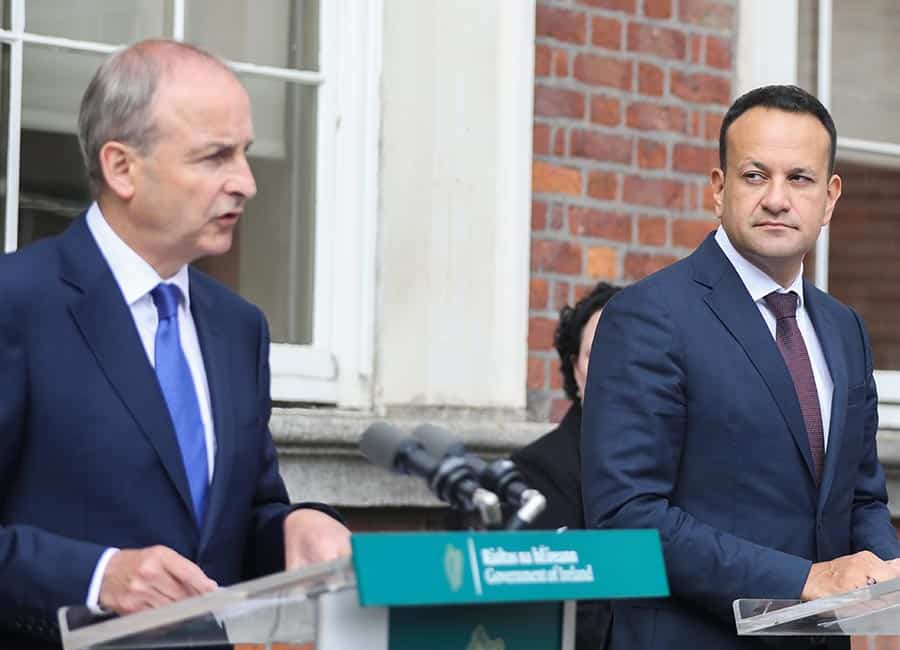Tánaiste and Minister for Enterprise, Trade and Employment Leo Varadkar has outlined the government's enterprise policy to 2030 as he prepares to take over as Taoiseach later this month.
The cabinet on Wednesday signed off on the White Paper on Enterprise, the result of a review of enterprise policy launched earlier this year that involved public consultation and the engagement of an international panel of experts.
The paper lays out a target to increase by 20% spending by IDA Ireland client companies by 2024, and for half of all foreign direct investments for 2021-24 to be located outside of Dublin.
Similarly, Enterprise Ireland has been tasked with locating two-thirds of new jobs created by client companies by 2024 outside the capital, and the document calls for 90% of SMEs to be at basic digital intensity by the end of the decade.
The government is now aiming for average annual growth of 2.5% in productivity among Irish-owned enterprises by 2024, and for a 50% increase in the number of large Irish exporting companies and the creation of 2,000 Irish-owned exporters by 2030.
The document set an emissions reduction target of 35% for industry and 45% for the commercial built environment by 2030, and the plan aims to increase research and development spending to 2.5% of GNI by 2030, up from 2.2%.
Speaking at the launch of the paper, Varadkar said: "We must ensure that our future success is founded on sustainability, innovation and productivity. This includes taking action to ensure we stay competitive and have the right environment for new firms to emerge and existing businesses to succeed.
“Decarbonisation requires all business to take action and invest in change. Government will be there to help businesses reduce their reliance on fossil fuels and improve their energy efficiency in the coming years through a range of initiatives, including knowledge transfer, grants and loans.
“While weaning ourselves off coal, oil and gas will not be easy, it also presents incredible opportunities for Ireland, specifically in the area of renewable energy production. In the years ahead, Ireland can become an energy exporter, with the benefits that accompany that – greater energy security and price stability, employment and regional development."

He added that, despite the recent layoffs in the tech sector, there would be "more data, more robotics, artificial intelligence, augmented and virtual reality and autonomous transport.
"There will be a huge expansion of the tech sector in the medium term and we will make sure that Ireland is at the forefront of that," he said, adding that Ireland must not take its prosperity for granted.
Minister of State for Trade Promotion, Digital and Company Regulation Dara Calleary said: "The White Paper articulates how we will retain and evolve our value proposition. This will include enhancing our green enterprise credentials, further establishing Ireland as a sustainable, and competitive location for multinationals.
“Ireland is a hub for the digital sector, with a strong ecosystem of multinational and indigenous technology companies. A large proportion of our SMEs however are not keeping pace with the digital transition.
"Delivering impactful programmes that accelerate digitalisation across Irish businesses will be critical to boost productivity and resilience in the period to 2030.”
Minister of State for Business, Employment and Retail Damien English said the government is committed to assisting local businesses by "enhancing management capabilities, providing access to competitive finance and helping them to improve productivity.
“The White Paper provides the blueprint for how we will deliver on this commitment in the years ahead. We are setting out how we will fuel entrepreneurship, equip locally trading businesses with the know-how to fulfil their potential, and help companies to scale and succeed from Ireland.”
Photo: Leo Varadkar. (Pic: Jason Alden/Bloomberg via Getty Images)








